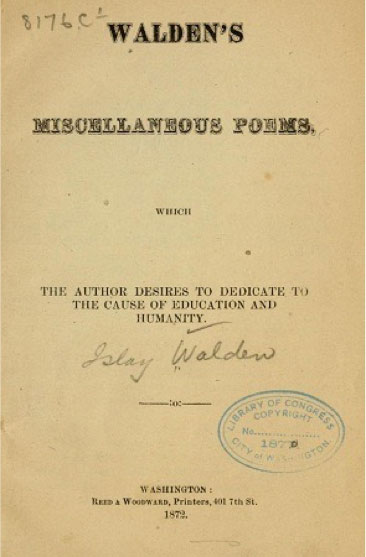Slavery, Justice, and New Brunswick Theological Seminary
February 25, 2016
From Harvard and Yale to Princeton and Rutgers, the African slave trade and the practice of slavery helped to fund a surprising number of American colleges and universities. New Brunswick Theological Seminary is counted among them. Recently, the NBTS Anti-Racism Transformation Team, in conjunction with the Dean’s Office, sponsored a workshop to explore and address the ties between the Seminary and slavery.
The event was organized and hosted by Dr. John W. Coakley, L. Russell Feakes Memorial Professor of Church History at NBTS; Dr. Willard W.C. Ashley, Sr., Dean of the Seminary and Associate Professor of Practical Theology; and Vernon Williams, Development Officer.
The Slavery, Justice and New Brunswick Theological Seminary Workshop examined the presence of African Americans (enslaved and free) in the Seminary and city of New Brunswick in the early years; the involvement of Seminary officers, benefactors and others in the institution of slavery; the views of the Seminary, its students and leaders in the debates on slavery and abolition in the years leading up to the Civil War; and how NBTS should take account of these parts of its history in its present policies and vision of the future.
“As an institution that originated in pre-Civil War America, New Brunswick Theological Seminary’s history has connections with the history of the slavery of African Americans,” explained Dr. Coakley. “The workshop was a first step toward uncovering some of those connections, so that as a Seminary community we can acknowledge them more truthfully and consider what is to be done in the light of those connections.”
The NBTS students, faculty and alumni in attendance were joined by Dr. Deborah Gray White, Board of Governors Distinguished Professor of History at Rutgers University. Dr. White is also the Chair of Rutgers’ Committee on Enslaved and Disenfranchised Populations in Rutgers History.
A number of Rutgers University’s founders and early benefactors were slave holders. The Committee on Enslaved and Disenfranchised Populations is charged with examining the role disadvantaged groups played in the founding and development of Rutgers University, and make recommendations on how the University can best acknowledge their influence on its history. Dr. Coakley was asked by Rutgers to join the committee.
As for NBTS, slaver connections between the Reformed Church in America and the early Seminary are well documented in each organization’s archives, but there is very little awareness of the information.
The Seminary was formed under the Reformed Dutch Church (now known as the Reformed Church in America). Slavery was part of the Dutch colonization, and there were African slaves already in “New Netherland” (the Dutch culture area of the NJ and NY river valleys). The early Seminary was funded in large part by subscriptions, which were essentially donations that made the Seminary viable. The subscribers included Henry Rutgers (Rutgers University’s namesake) and John Henry Livingston (first NBTS President), who were both slave owners.
“The point to remember here is that the Seminary was the child of the church, and really much more than that – it was an organ of the church, indistinguishable from the church. By definition, that means it was deeply rooted in a community where slavery was a given,” said Dr. Coakley.

First African American Graduates
John Bergen and Alfred Islay Walden (Class of 1879) were the first African Americans to graduate from New Brunswick Theological Seminary. Most is known about Walden (1847-1884), who was born a slave in North Carolina and gained freedom only after Emancipation. Sold twice as an infant, he was recognized at a young age for his abilities in mental math calculations and language. Determined to become a minister, Walden walked to Washington, D.C., during the winter of 1867 and supported himself by publishing his poems and giving lectures.
Walden enrolled at Howard University on scholarship, earning his degree in 1876. Despite his struggles with poverty and near blindness, he returned to New Jersey and received a scholarship to attend NBTS.
As he did in Washington, D.C., Walden used what little money he had to establish a neighborhood ministry and Sunday school for needy African Americans in New Brunswick.
In an eloquent letter to Professor David D. Demarest (Class of 1840, Professor 1864-98) about his tuition, Walden provides a glimpse into how he saw and experienced the Seminary and the city of New Brunswick. This is the first documented instance of an African American speaking of his experience at NBTS.
Next Steps
Dr. Coakley made it clear that the workshop was just the starting point of a dialogue. “This is the beginning of excavating and telling the story. There are Black voices that can and should be heard that are sitting in archives. It’s possible to make visible the people who have been invisible, and that’s exciting.”
The Executive Committee of the Anti-Racism Transformation Team has now officially created the Task Force on Slavery, Justice and New Brunswick Seminary. It has a mandate to create a report on the historic involvement of the Seminary with the institution of slavery and the place of African Americans in the Seminary’s history, and to then make recommendations for action based on the findings.
